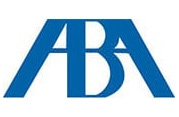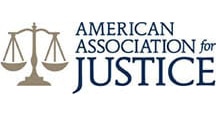What Are Traumatic Brain Injuries And Concussions? How Do They Occur?
Various types of head injuries may occur in a motor vehicle accident and these include open and closed head injuries. Such trauma can lead to injury to the brain, either as a direct result of blunt force trauma or as a result of the rapid and forceful movement of the head that can occur in many types of whiplash injuries. A concussion is another term for a traumatic brain injury. Such an injury can change the way your brain works and the signs and symptoms can be very subtle and may not be readily apparent. Symptoms may develop over time. There does not need to be a loss of consciousness for there to be a concussion or traumatic brain injury.
What Are The Symptoms Associated With A Concussion Or A Traumatic Brain Injury?
Symptoms from a concussion or traumatic brain injury may include a variety of symptoms such as headache, blurred or double vision, dizziness, lightheadedness, balance problems, or problems walking. They may also include confusion, speech problems, nausea, or vomiting. There can be memory problems or a general feeling of illness. Over time, there may be a worsening of headaches, further problems with memory and concentration, difficulty handling and processing information, and problems in learning.
These injuries can cause extreme fatigue, problems with sleep, depression, or frustration. Since the portion of the brain that controls personality may be affected, changes in personality can develop. It is important to keep in mind that only some of these symptoms may occur in cases of a concussion or traumatic brain injury. The degree of severity of the injury can vary considerably and the amount of time for recovery and the extent of recovery can vary widely as well.
What Type Of Compensation Is Available For Such Extreme Injuries?
Each accident and its impact on the injured individual is unique. An experienced personal injury will work with the client and the client’s medical specialists to determine the nature and severity of the injury and its impact on both the injured person and his or her family. Compensation will include economic as well as non-economic damages that the injured person has sustained. These may include past, ongoing, and future medical expenses, past and future loss of income, out of pocket expenses for medical appliances and prescriptions, and perhaps the cost of renovating one’s home, if there is a need for improvements to deal with impairments.
Compensation will also include amounts for pain and suffering for both physical and emotional injuries. Psychological trauma is often a major consideration, especially in more severe head injury cases. These types of injuries frequently touch upon all kinds of disruptions in one’s life and may include grief, inconvenience, worry, anxiety, and diminished enjoyment of life.
How Long Does An Injury Claim Involving A Traumatic Brain Injury Typically Take To Resolve?
Since the degree of severity of injuries can greatly differ, cases involving traumatic brain injuries can vary widely in terms of the length of time to bring them to resolution. The full range of symptoms and the effects on the injured person and his or her family take time to become apparent. It is important that all symptoms be fully and thoroughly discussed with one’s doctors. Medical providers need to be promptly informed of any worsening conditions or of the development of new symptoms. It can take some time to put a case such as this together. It is wise not to rush towards settlement before the full nature and extent of the injuries, as well as their impact on the injured individual and his or her family, can be more fully determined.
For more information on Traumatic Brain Injuries & Concussions, a free consultation is your next best step. Get the information and legal answers you are seeking by calling (301) 251-0030 or (301) 251-0030 today.















